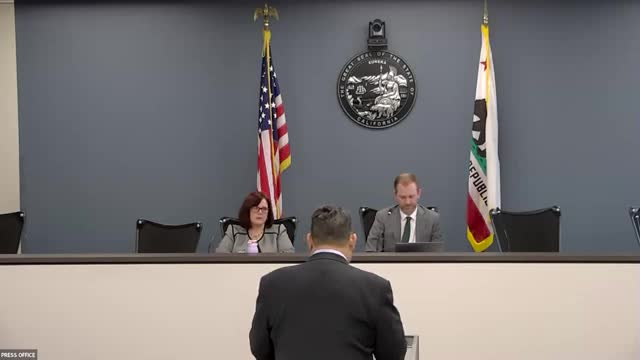Small‑business and startup representatives warn CPPA rules could hinder growth and drive firms from California
Get AI-powered insights, summaries, and transcripts
Subscribe
Summary
Small‑business advocates, chambers of commerce and startups told the CPPA that the draft regulations' compliance costs, website and advertising changes, and broad ADMT definitions could burden firms and reduce competitiveness, citing agency impact estimates and individual startup costs.
Small‑business groups, chambers of commerce and startup founders used the CPPA's Jan. 14 public comment hearing to warn that the proposed privacy regulations would impose heavy compliance costs, make digital customer acquisition harder and, in some cases, push businesses out of California.
Multiple speakers referenced the agency's economic analysis repeatedly during testimony. Julian Kennedy, president of the California Hispanic Chambers of Commerce, cited figures presented in the rule‑making materials: "3,500,000,000 in direct implementation costs to businesses resulting in a much larger adverse impact... ongoing cost of 1,000,000,000 annually for the next 10 years, potential of 98,000 initial job losses in California," he said. Other representatives from the Black Business Association, Strippers United, the African American Chamber of Commerce, and minority‑focused chambers echoed concerns that minority‑owned small businesses rely on targeted, first‑party advertising and could be disproportionately harmed if the CPPA restricts those practices.
Startups and small vendors also described concrete competitive harms. Patrick Coutts, cofounder and CEO of Abstract, said the agency's impact statement estimated "it will cost a typical business over $20,000 a year for a decade" to comply with website and related requirements — a figure Coutts called prohibitive for early‑stage companies relying on targeted outreach. Anthony Lycon, chief strategy officer at Epic Reach, and others said sharp fee increases and extra disclosure requirements would make small vendors less competitive compared with larger firms that can absorb compliance costs.
Speakers representing industry coalitions — including the Silicon Valley Leadership Group, BizFed Institute, and trade associations — urged the CPPA to narrow definitions, coordinate with the legislature, and consider staged or scaled compliance to protect startups and small businesses. Several witnesses asked for more stakeholder engagement focused on small‑business impacts before advancing final rules.
The agency recorded the oral comments for the rule‑making record; written comments are due Feb. 19, 2024, and the CPPA will hold a second public hearing that day.
